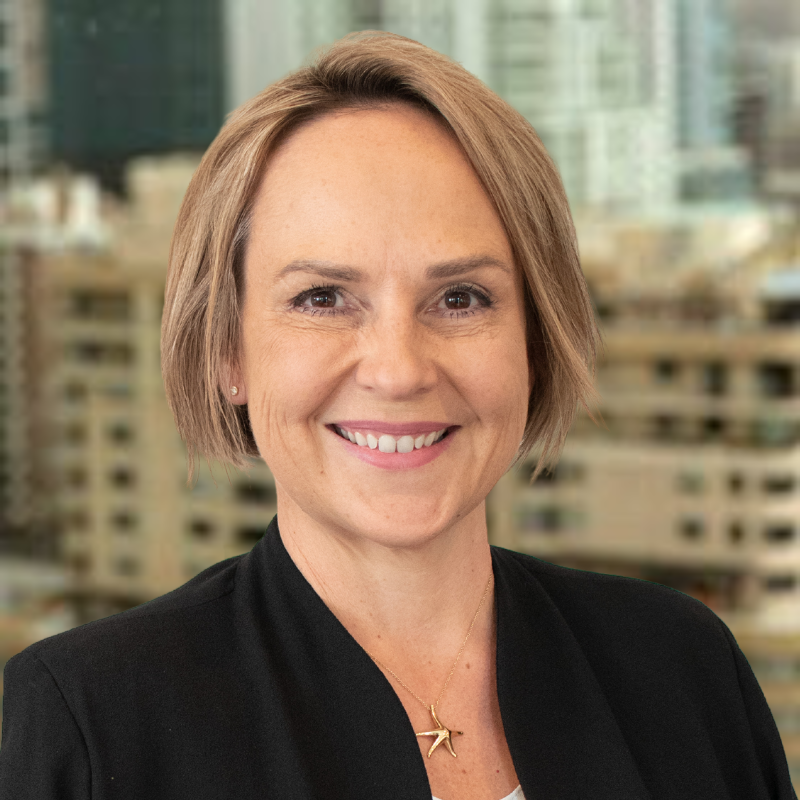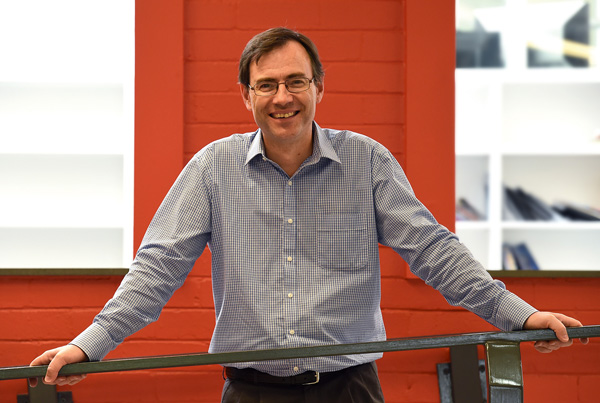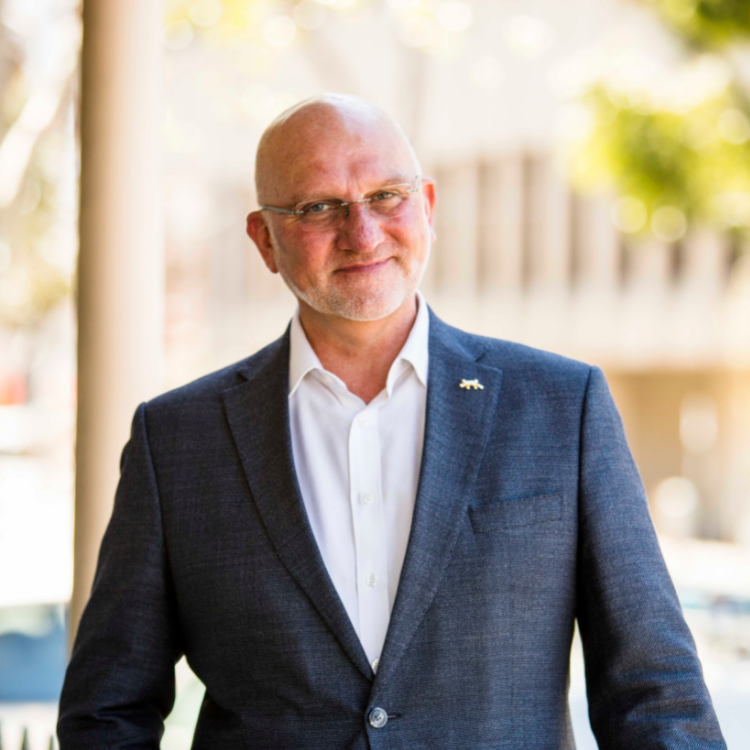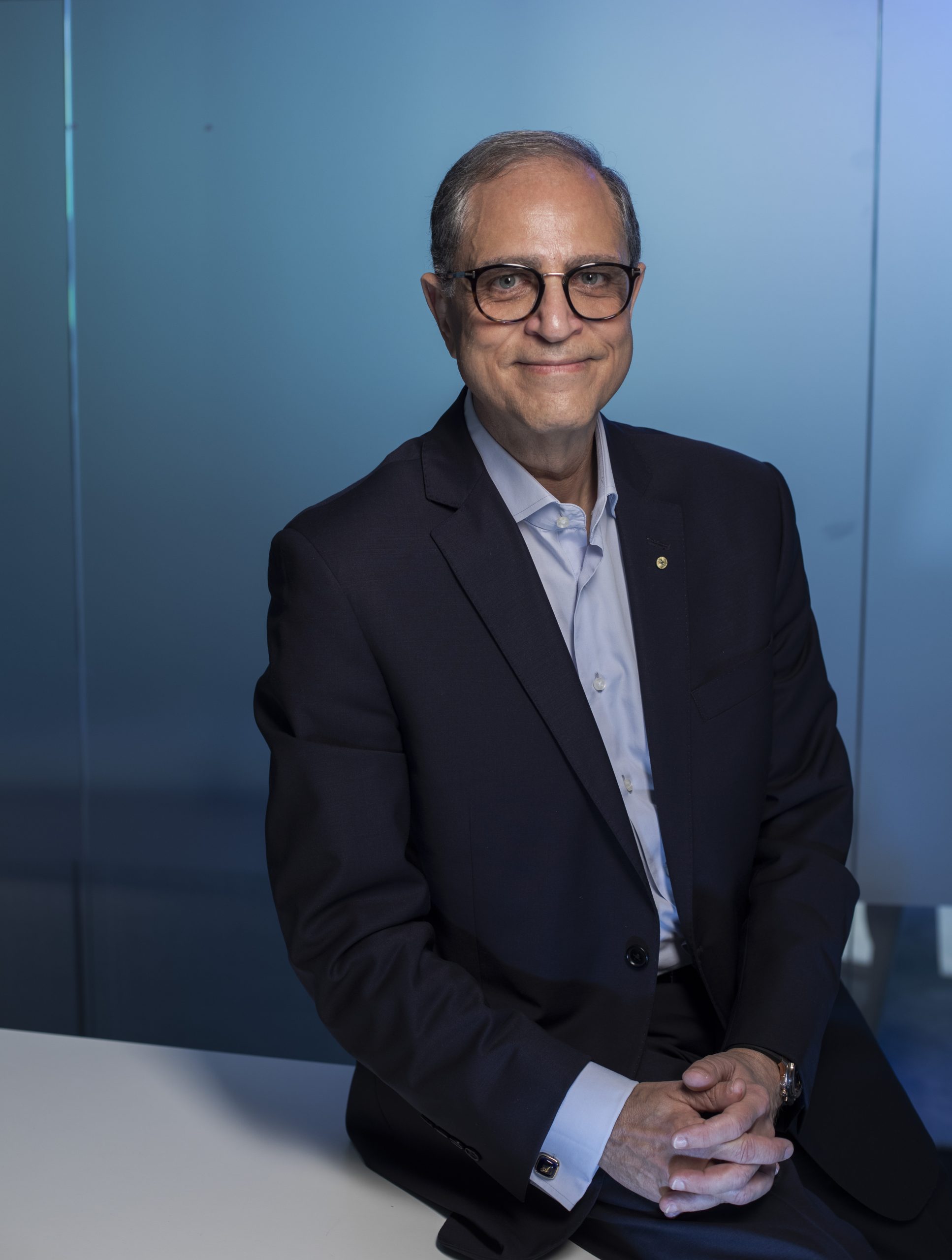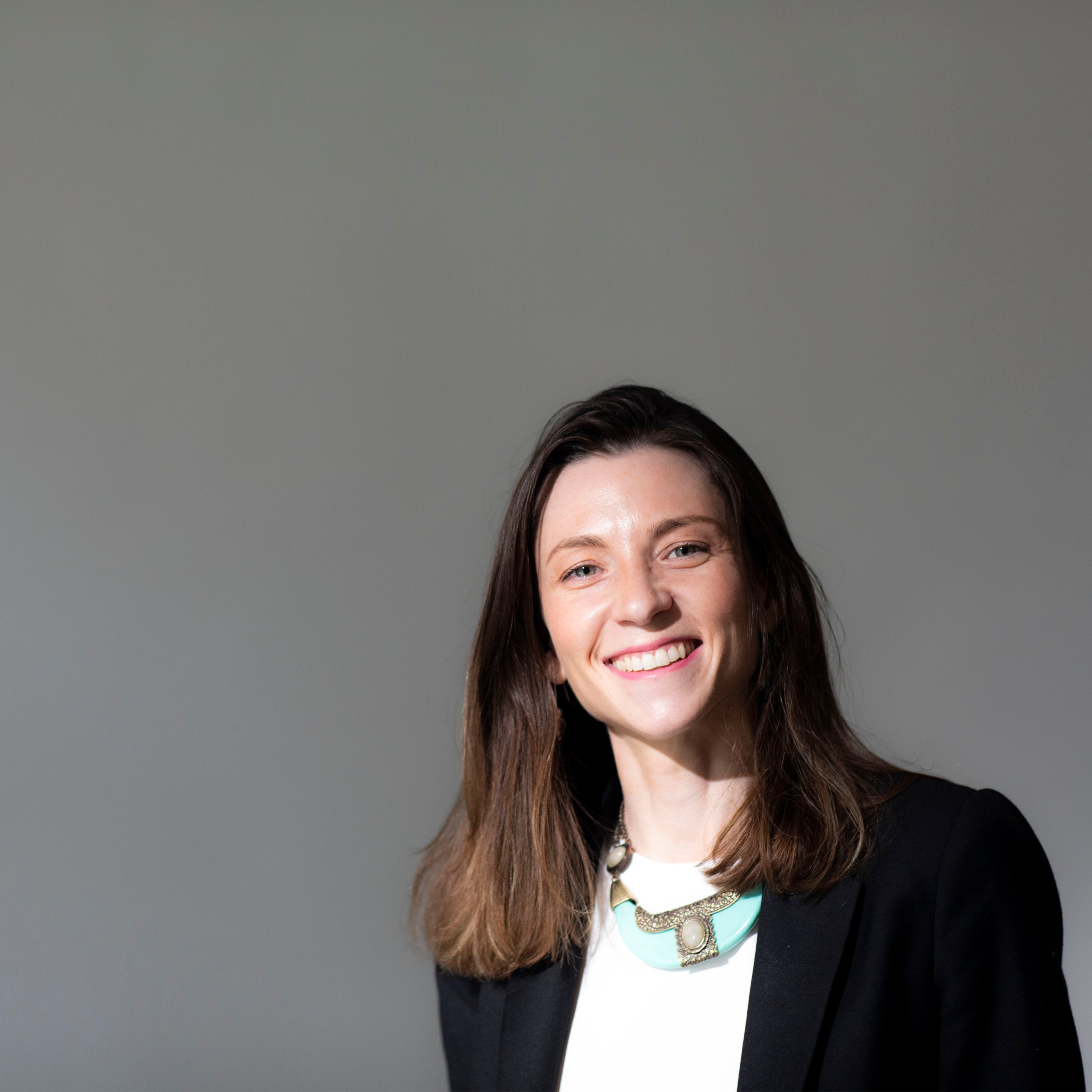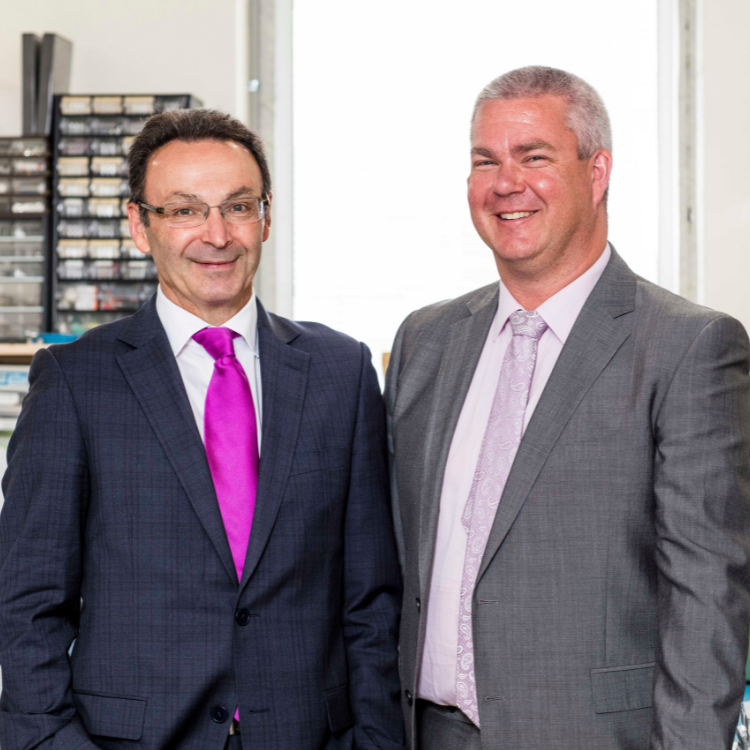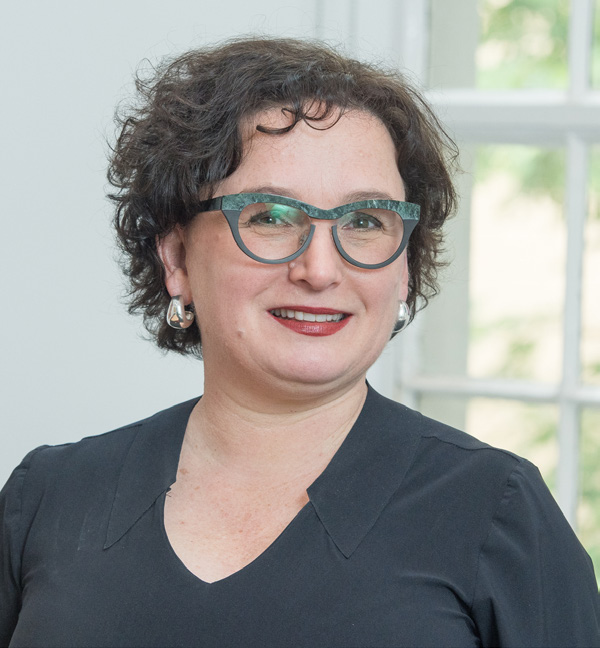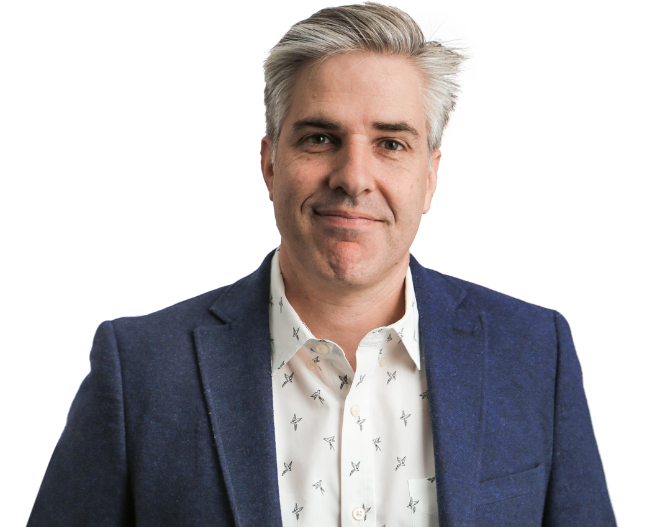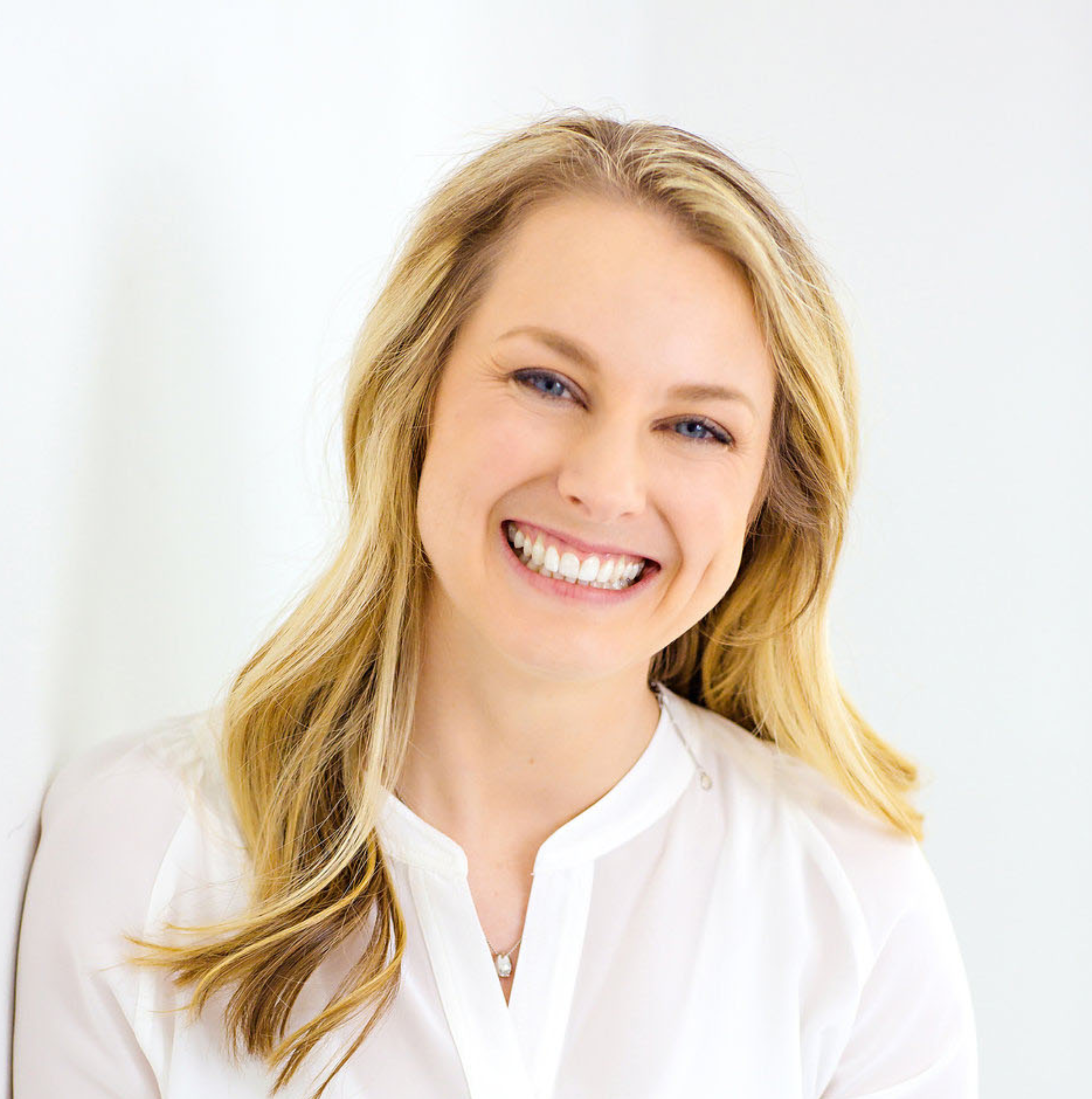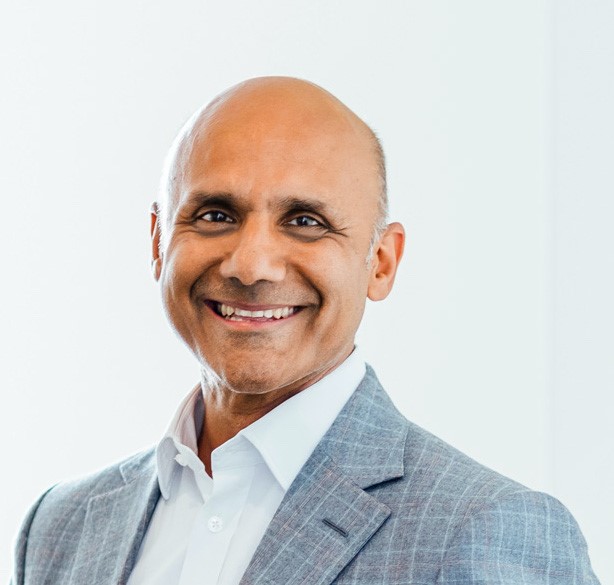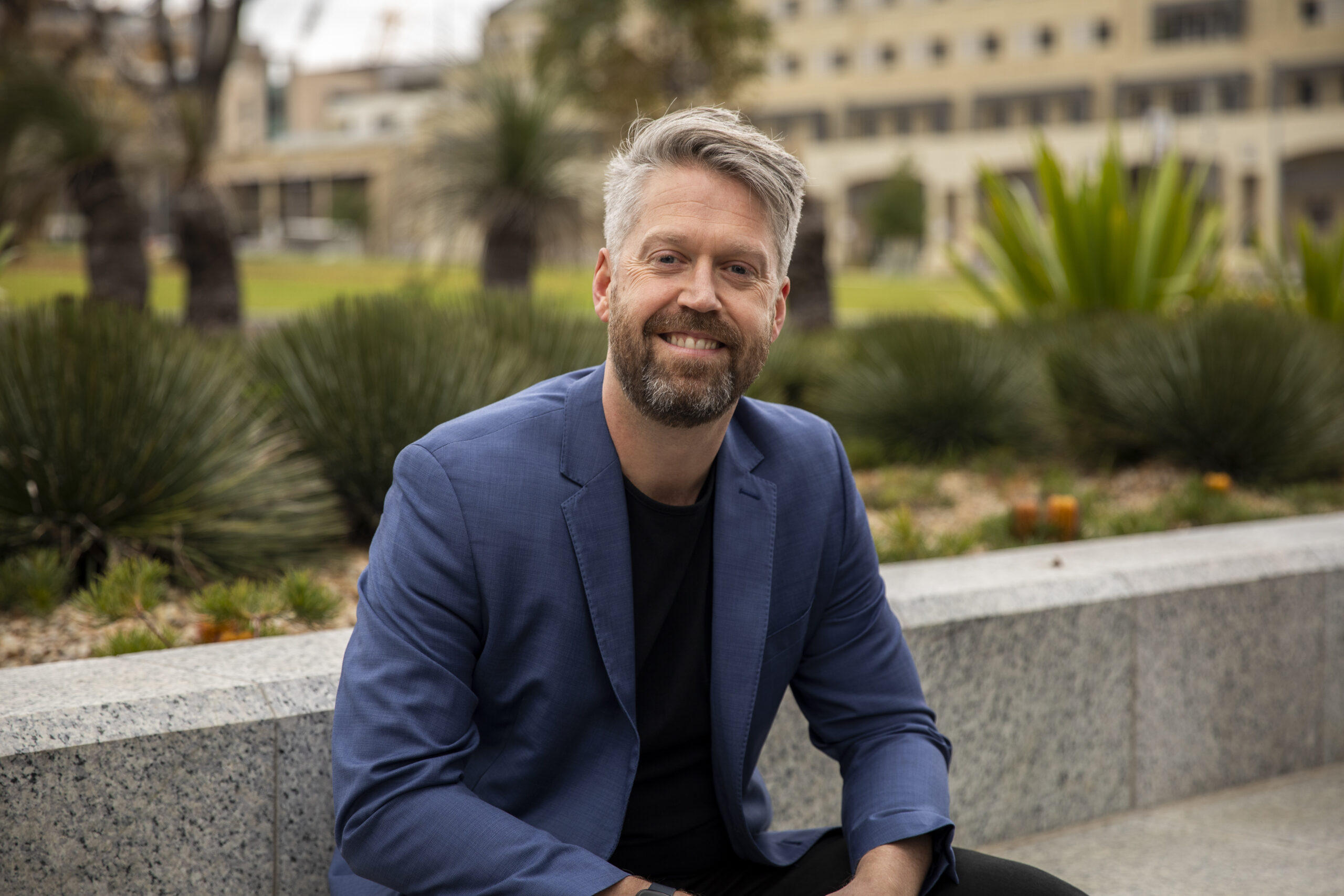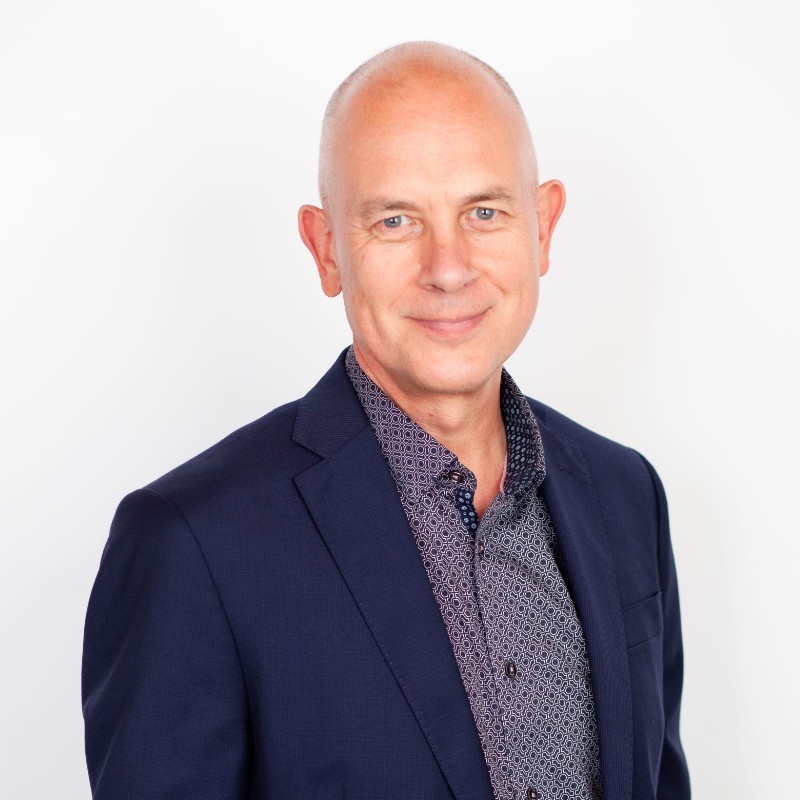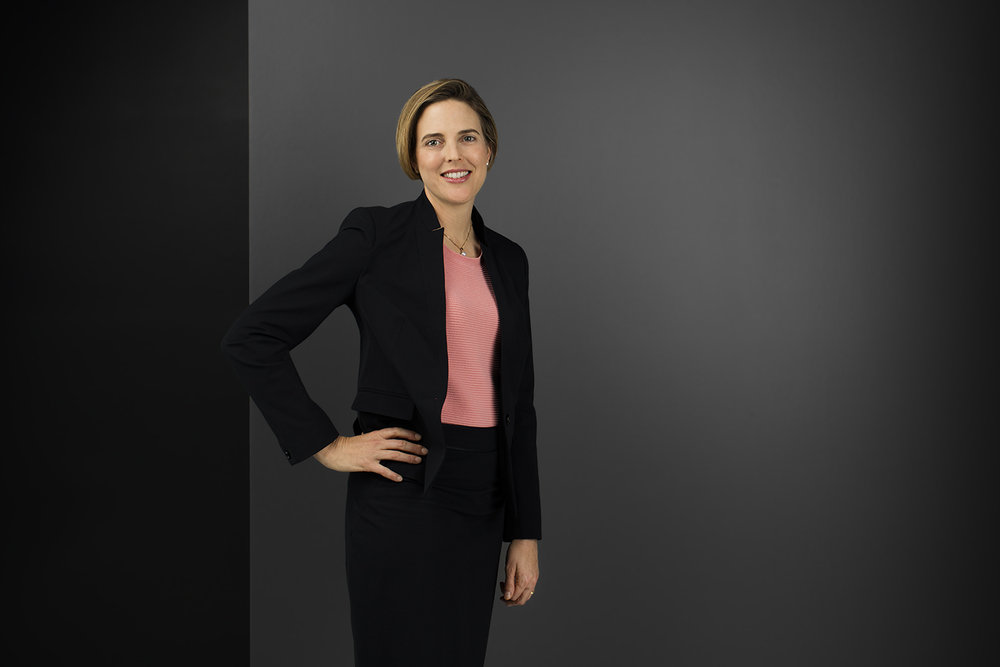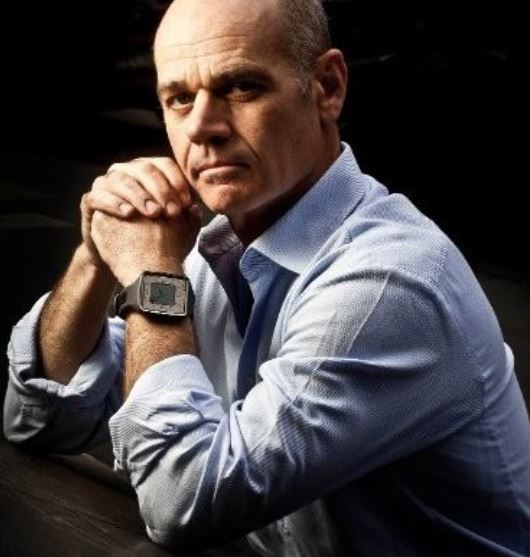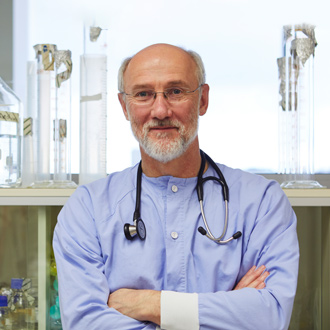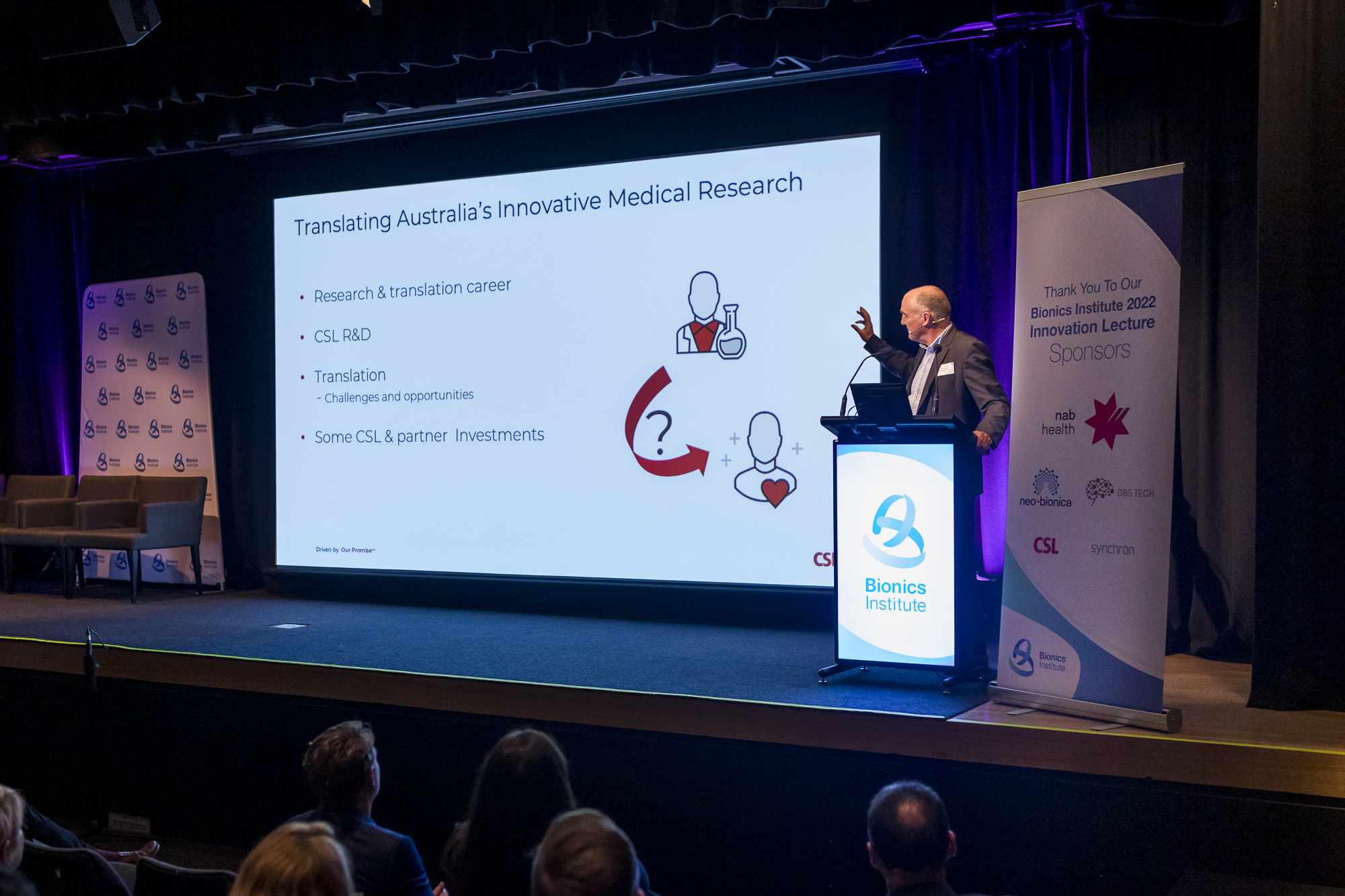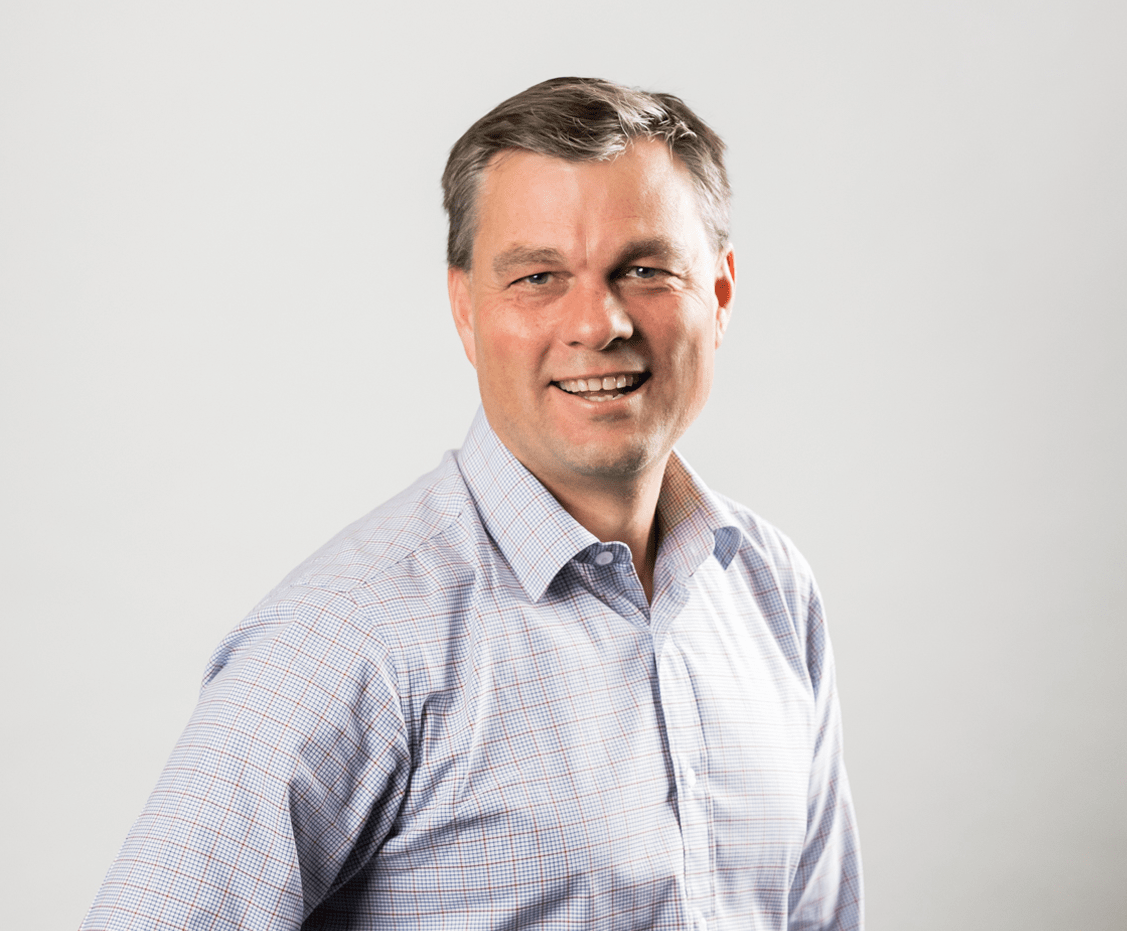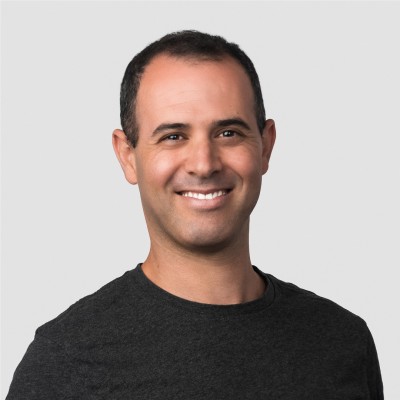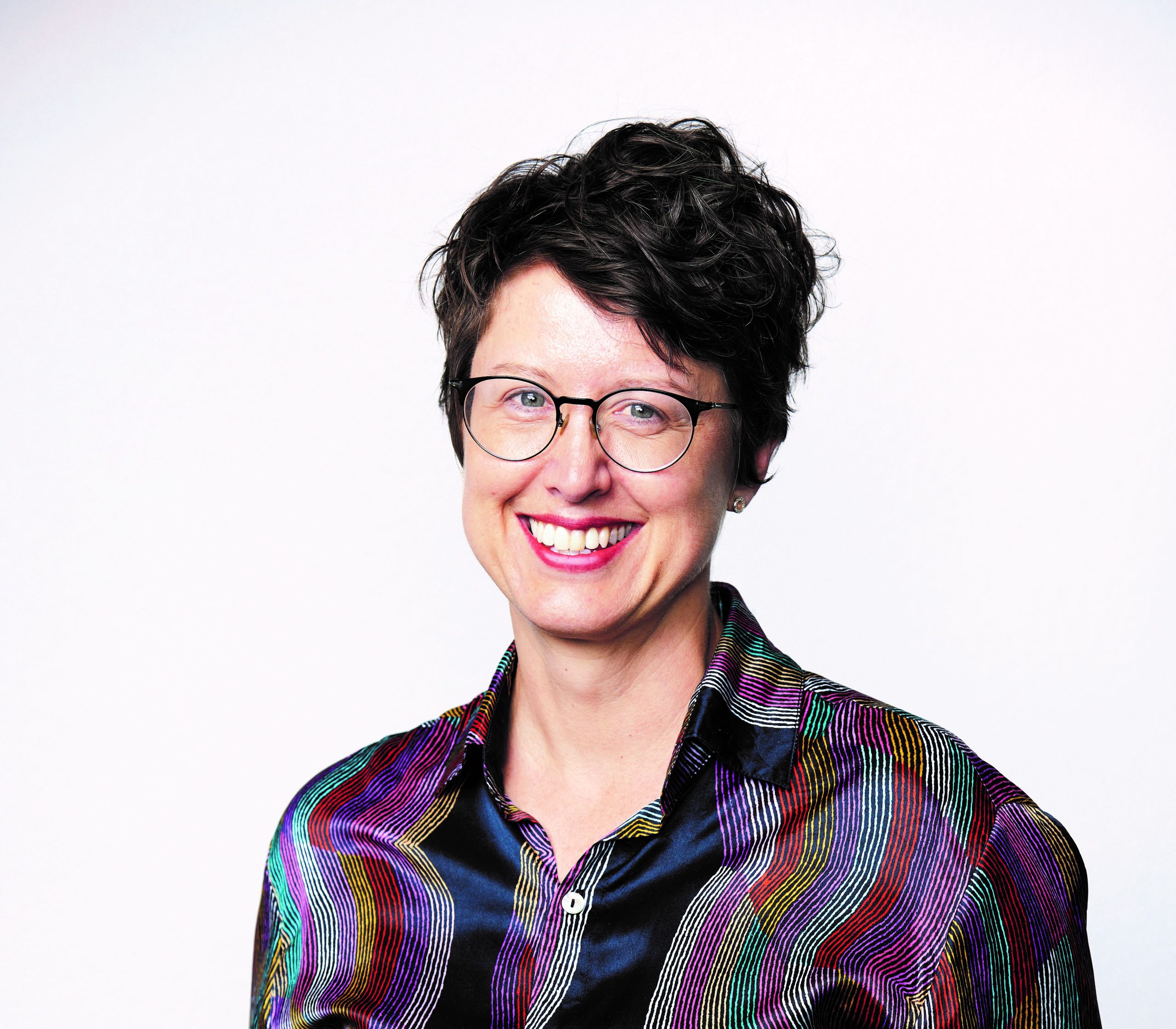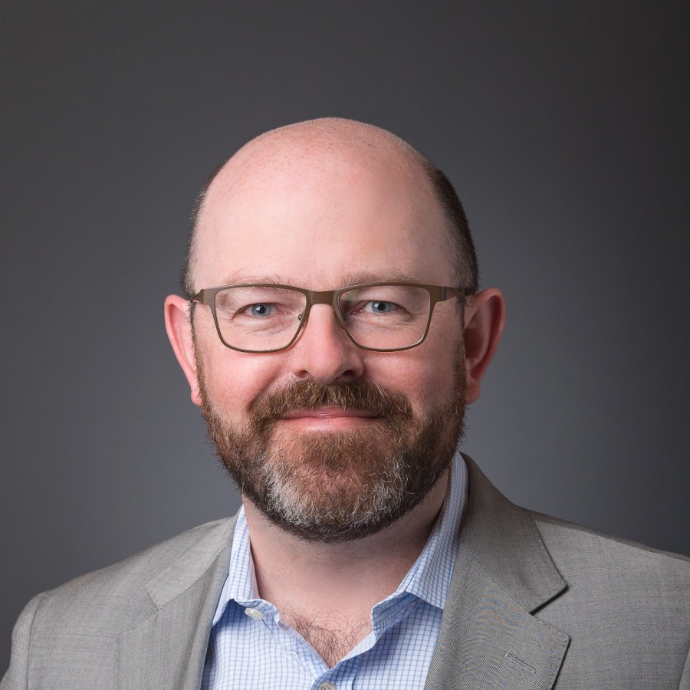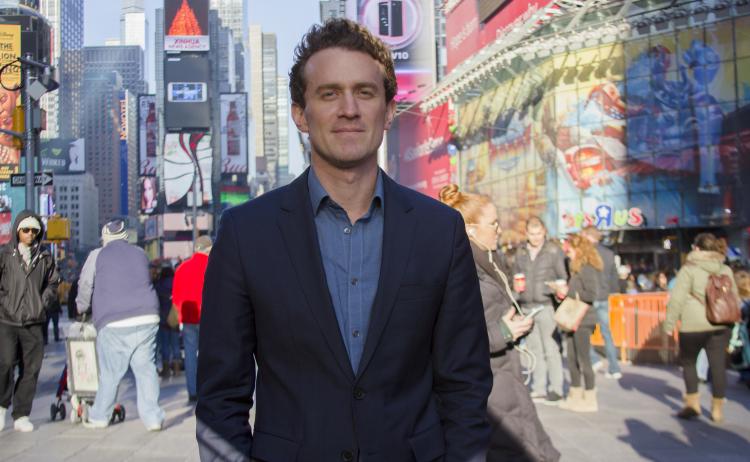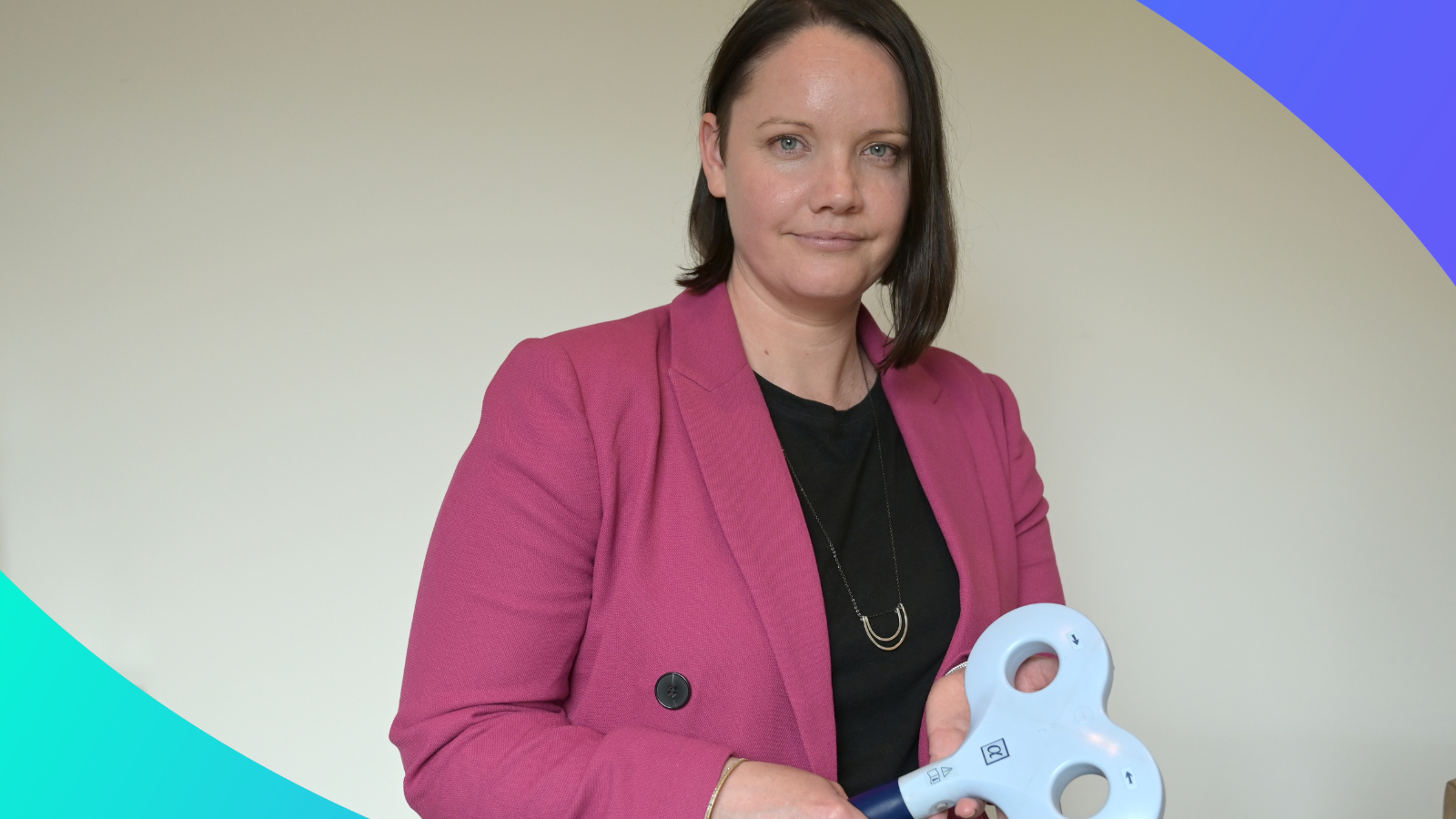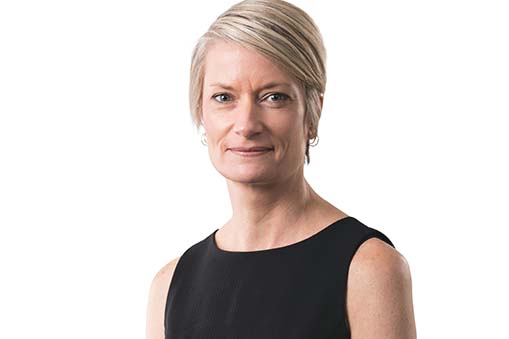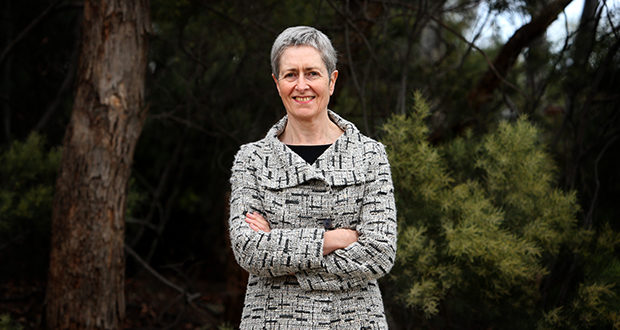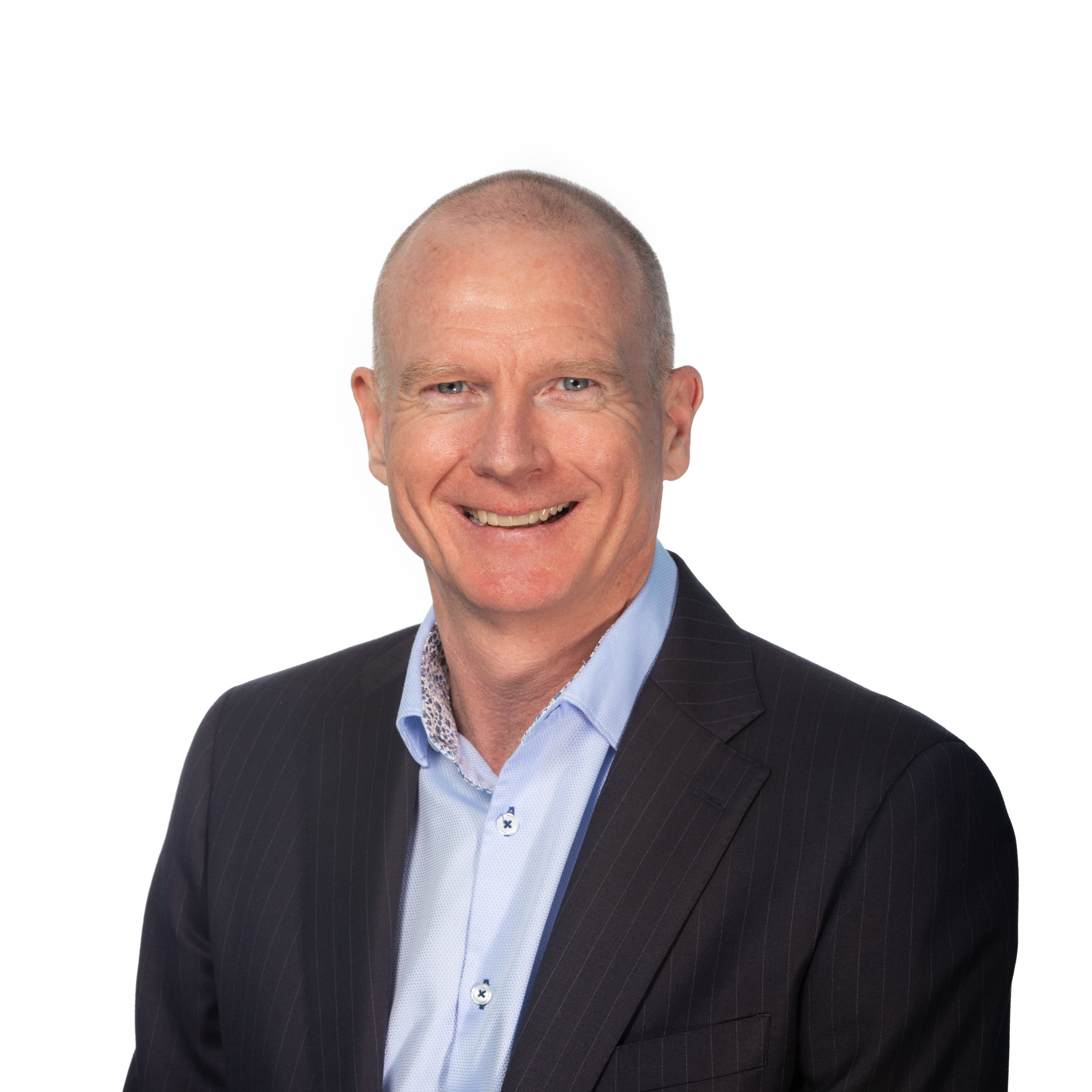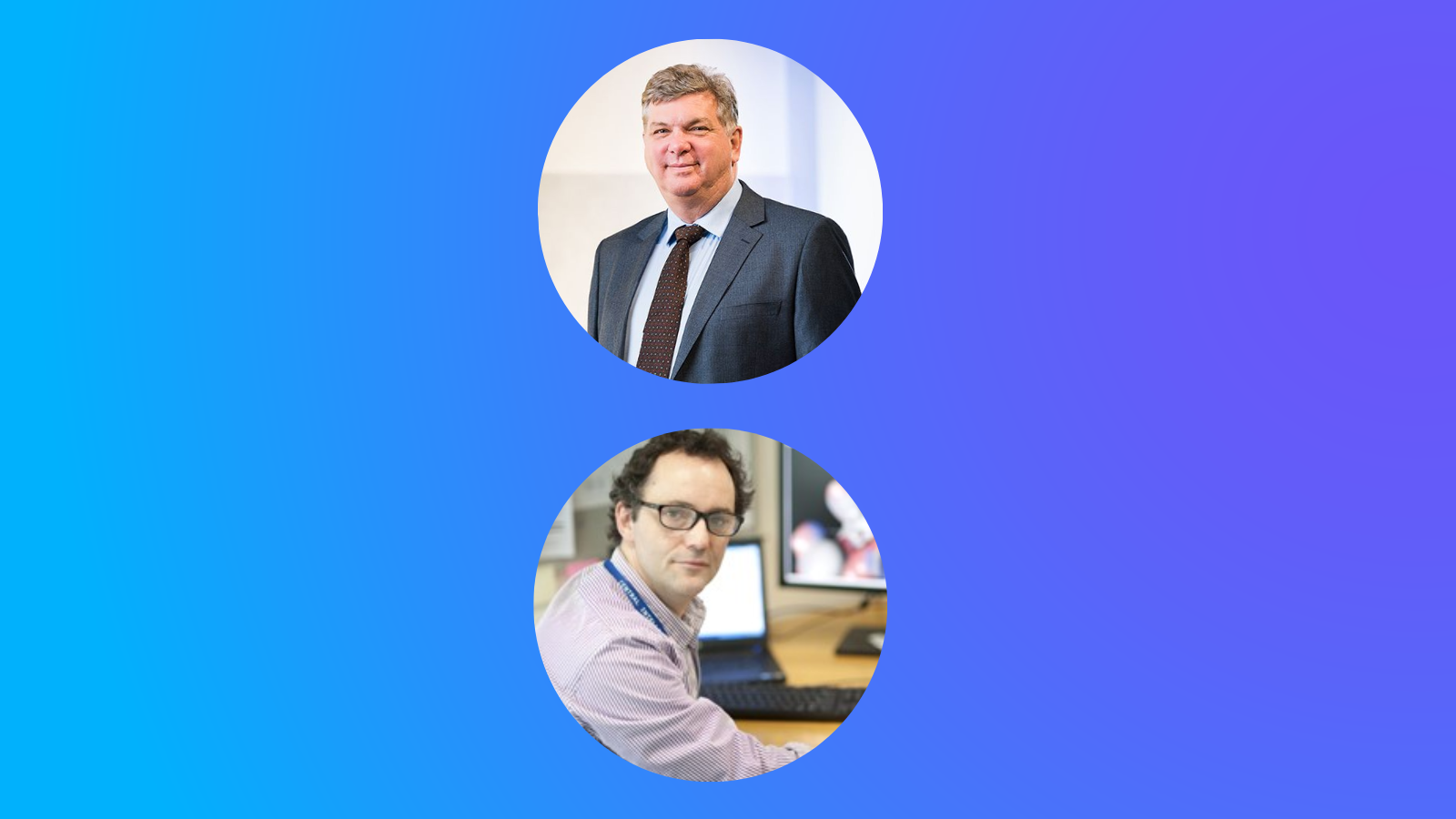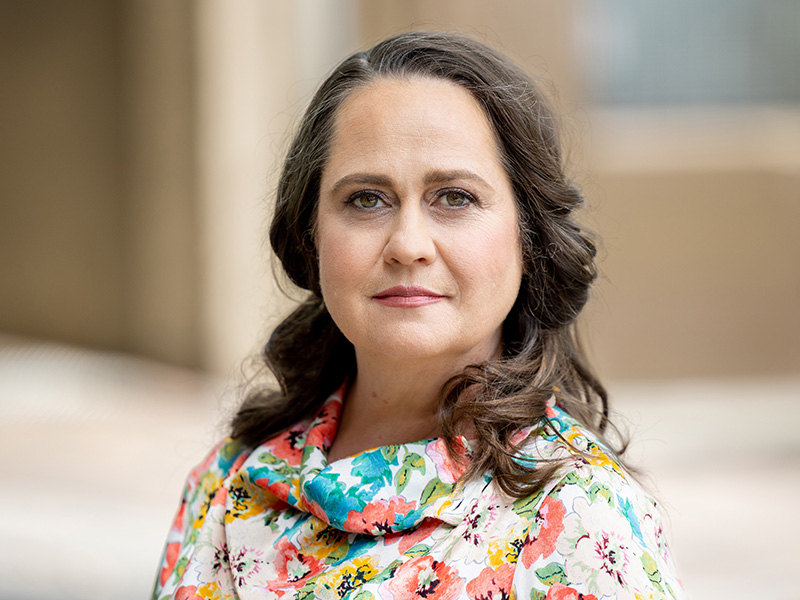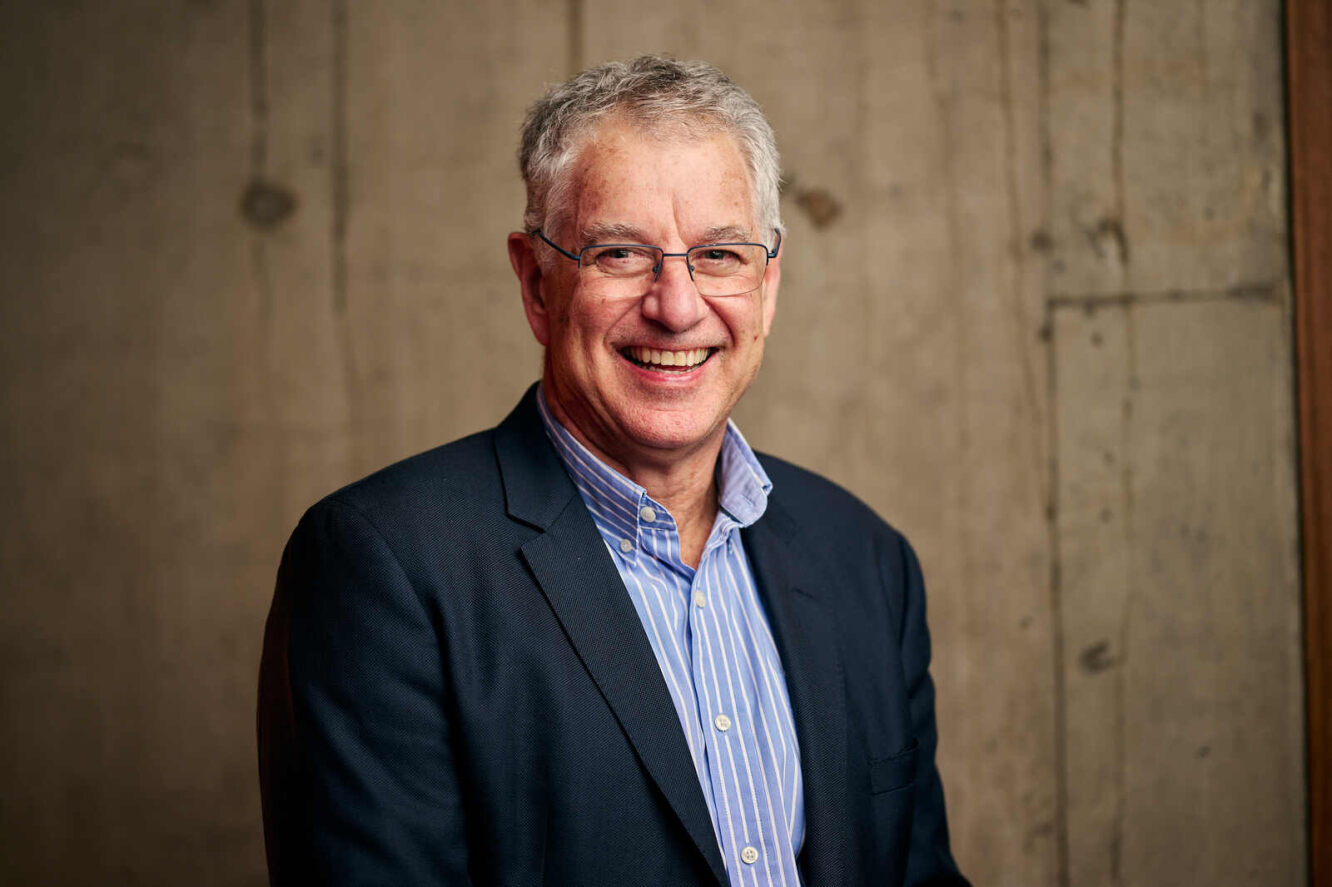Med Tech Talks
The Cochlear blueprint for successful innovation with CEO Dig Howitt
Established to commercialise the cochlear implant developed by Bionics Institute founder and bionic ear pioneer, Professor Graeme Clark and his research team, Cochlear holds 60% of the global cochlear implant market.
In this episode of Med Tech Talks, Robert Klupacs was joined by Dig Howitt, CEO and President of Cochlear Ltd and a renowned international leader in med tech.
Robert and Dig discuss how Cochlear’s mission is set to ensure continued leadership in the hearing implant landscape.
They go on to explore what we can learn from the Cochlear blueprint to help build Australia from innovation.
In this episode you will hear about:
More information:
Read the story of bionic ear pioneer, Professor Graeme Clark:
Dig Howitt [00:01:15] Great to be here and happy to be joining you today.
Robert Klupacs [00:01:18] Fantastic. So dig, we’ve got a few questions. Some of them we’ve asked all the other people on the on the podcast series, but there’s a couple specific to you, so looking forward to seeing how you respond. So let’s just jump in deep. Your journey is fascinating. You started with an engineering background Honours university in Sydney. Then you moved into consulting, then running a major building company, Boral, and then moved into Cochlear. It’s not the classic med tech journey. So how do we find you today? Running Cochlear Limited.
Dig Howitt [00:01:53] I think it is certainly an interesting journey and I think, at least for me, a lesson in not having a career plan. I think if I sit down to have a career plan, I wouldn’t have put on that plan 22 years at Cochlear and be the CEO. It’s more about taking opportunities as they arise. And I’ve always been interested in in technology. That’s why I did electrical engineering. And then I got very interested in business, which is why I did consulting and I ended up in general management roles in Boral and coming to Cochlear in 2000 was just a terrific opportunity to put those two things together that real interested in management and the interest in technology. And it’s just such a fascinating company and it’s been such a fascinating journey for me that I continue to learn on that. I’ve never looked to go anywhere else since joining Cochlear 22 years ago.
Robert Klupacs [00:02:52] Well, fantastic. So as you said, you’ve been there 22 years. Cochlear is a fascinating company because it’s got shareholders, it’s got to make money. It’s doing incredible innovative work. And yet in Australia is looked upon as this iconic company about what we could do from the country. You’ve got a lot of pressures on you. What does it mean to you to lead an organisation like Cochlear?
Dig Howitt [00:03:13] Well, it’s an enormous privilege. Cochlear is a fantastic company as much as any, because of the because of what we did, because of our mission. But it also ii is just fascinating technology. And as you said, it’s a global business and all of the challenges of running a global business is enormous privilege. It’s also an enormous responsibility that I share, that helping the people with hearing loss here for the first time or regain their hearing and then supporting people throughout their lives. And that’s one of the things about getting an implant is that a person relies on that implant for the rest of their life and therefore relies on the company that makes that implant to be there to provide them with service and supports and new technology over time. And that responsibility is critically important to us and absolutely drives a long-term thinking in all that we do here at Cochlear. So, it is a truly wonderful organisation and a real privilege to be a part of it.
Robert Klupacs [00:04:24] A lot of people are fascinated and enthralled by what you’re trying to achieve, what you are achieving. But for our listeners, you’ve mentioned it briefly just before, but could you go into a little bit more detail about the mission of Cochlear? And I know a lot of our listeners are really fascinated by the new technology innovations that are currently underway and still being developed by you. Are you able to flesh that out a little bit for our listeners?
Dig Howitt [00:04:48] Sure. Yet again, our mission is absolutely central to what we do. It’s the motivator for nearly all of us at Cochlear, and we start all of our big meetings at Cochlear by putting our mission, we got our mission on a slide and we start our meetings with that to remind ourselves of what’s important. And so I suppose we’ve been a purpose driven company way before. Being purpose driven company was it was something that now many companies rightly aspire to. Our purpose is to help people hear and be heard. And there’s a there’s a few different layers to that, and we spell that out in our mission. So you can have a very generic mission, but it is actually quite specific. So we do help people hear and be heard. We do that not because we just want to make people hear, but actually knowing that hearing is an essential part of empowering people to reach their potential and to live a full life. So it’s really about what is it, what is the benefit that hearing gives to people? And that’s what we are, we are focused on. Our mission also recognises that hearing loss is one of the most prevalent medical conditions in the world, one of the least treated. And we need to we want to work with others to change that treatment of hearing loss, to change awareness of solutions for hearing loss because of the great benefits that that will bring to people and to their lives. And in the last part of our mission, you can see it’s quite a long mission. But it does two things. One is that we are a technology company and innovation is the core of what we do, going right back to the inspiration from Professor Graham Clark, and we continue to invest significantly in innovation today, but also recognise that lifetime relationship that we have with all of our recipients around the world and the responsibility that places on us to continue to provide them with technology. And as a company, the only way we can survive over a long time is to make sure that we are a strong and successful and thriving company. And that means we have to be profitable. We have to reinvest in in our technology and in our business to make sure that we continue to thrive over the very long term. So, yeah, that mission is s actually describing our strategy, but it really is central to all that we do and that people.
Robert Klupacs [00:07:17] As a lot of people, I don’t think quite understand just how purpose driven you are. And I’ve been fortunate to be working alongside Cochlear now for the last seven years and I see it and I think a lot of people just see Cochlear success story making profits and getting dividends from. But there’s a lot more to Cochlear, as you’ve just outlined. The beauty for me, sitting here at Bionics Institute talking to you at Cochlear, we both our origins to Professor Graeme Clark and his team who created the original cochlear implant. I think that’s a wonderful story for other innovations in Australia. But you and I and others have spoken about Australian innovation. Can you just touch on from your perspective where you see the legacy of the cochlear implant as an example of an Australian success story in innovation both here and on a world scale?
Dig Howitt [00:08:04] Yeah, I’d love to because it really is a fantastic example of all of the elements that go into building, taking a wonderful invention and turning it into a successful therapy that helps people all around, all around the world. So obviously, as you said, with this stuff with Graham Clark and his inspiration, driven by seeing his father struggle with hearing loss from it from a very early age, inspired Graham to say, in his words, “to fix ears”. And he set out on a long journey with many doubters and many naysayers to show that electrical stimulation could restore hearing to people. And that’s the wonderful invention. And the wonderful invention only gets to many people if it goes through a very effective and successful commercialisation phase. And that’s where I think that one of the interesting parts of the Cochlear story is Graeme did do this invention. He then went looking for a commercial partner and in Australia at the time was the nucleus group and part of the equipment was electronics, the world leading pacemaker companies that had the industrial knowhow and technology to be able to build a commercial cochlear implant. But there was also significant government involved because it now at this really high risk stage of development, which I’m sure your listeners would know a lot about, is when you’ve got this innovation but to commercialise it takes money and it’s high risk and there’s the federal government. The Fraser government actually at the time stepped in and provided a series of grants to Cochlear that had milestones attached to them. So they were staged in performance based but actually helped overcome that really high risk stage of the journey that then the Nucleus group under Paul Traynor could take forward to commercialisation and government put about $4 million into the development of the cochlear implant over a number of years based on achieving milestones which really helped with that commercialisation. So it is a terrific example of an entrepreneur and an innovator, in Paul Traynor, industrial knowhow in the Nucleus and appropriate government support to get through those high risk steps and all of those things coming together to enable Cochlear to perform in the early eighties, to be a leading global company and then to grow into a leading global company today.
Robert Klupacs [00:10:50] I’ve heard you speak on this topic many times before, and you just enunciated that very, very articulately about that story of how Cochlear formed. Spoke a lot about your views of how Australia needs to improve its innovation translation performance and you’ve just touched on some of that. But if you were given the keys to Australia’s innovation pipeline from research and development all the way through to commercialisation, what changes would you put forward so we can improve our ways to commercialisation? The reason I ask the question is just outlined how a multi-step process needs to be integrated to achieve success, which is what Cochlear was, so I’m fascinating know, our listeners would be fascinated to hear from you. He’s lived the dream live the story and been successful about what others can do.
Dig Howitt [00:11:34] Yeah, it’s a good it’s a great area to talk about because one of things we actually do have a number of successes in Australia. I guess the first thing I’d like to point out is we had there a number of companies who’ve grown and are growing now and I think it’s happening more, which is great to see. Cochlear is certainly one of the earlier ones and a leading one and it is about getting the elements together. And I think if we if we look first back at the statistics will say that Australia does some fantastic research and we are well rated in the world for research, we are less well rated in terms of commercialisation. We commercialise a smaller proportion of the ideas that we generate in research than some other countries, I think we could do that better. Part of out of doing that better is for innovators, and that’s particularly an offer that’s in university. But it could be it could be entrepreneurs, or companies, government and larger companies all to be working together. And clearly that happened well with Cochlear. But I think it’s that it’s the it’s those two or three different parties working together that create success and being clear of each other’s role. So we clear on the role of the innovator, clear on the role of the commercialisation, but also clear on the role of government, which is in part to help, I think, fund through some of those risk milestones, but very importantly to create the underlying environment where there is research going on, where there is freedom to be able to form companies and to take ideas forward. And I think this has been looked at a number of times over the years “is how do we commercialise technology better in Australia?” and actually those government grant in the late seventies were out of a government exercise to say how do we commercialise the research we do in Australia? But, but I do think it is about getting the right people together, understanding the different roles, having a level of government support, but absolutely tying that support to specific milestones, not just not just free handouts and but also that flow of patient capital. And that’s what Paul Traynor of the Nucleus group provided because it does take time to set companies up. And I think the other part in Australia that I think is worth looking at is what’s the regulatory environment and does that regulatory environment facilitate early stage companies getting to market safely but quickly with their products? And I think there’s been some good steps there in Australia, but I do think there is more we can do there to explicitly help early stage companies get appropriate regulatory approvals to get procurement, some of the government procurement or other procurement to cyber early stage companies to give them a chance to get going. And I think those things actually help build a whole ecosystem that can get us more ideas. But it is a hard problem. And I get asked this, others get asked, This is not a book, just follow these three steps and every single word. It is, it is a complicated problem, but it does need people working together to get to succeed.
Robert Klupacs [00:14:56] Thanks for that, I know a lot of listeners would have listened to that very, very closely. Just want to touch a little bit more about the company that you run. So Cochlear has been without a doubt extremely successful over many years. Having a 50% share of the global market in this sector is quite outstanding and very, very unusual. How do you continue to drive growth and innovation when you dominate the market?
Dig Howitt [00:15:22] I think that a lot of this about perspective. So we’re certainly the world leader in implantable hearing solutions. The reality is we account for a very, very small part of the hearing solutions market overall. As I said earlier, many people with hearing loss didn’t get treatment, any treatment at all. So if we look when we look at it from that perspective, we think that we have only a couple of percent of the potential global market for your implants. And it’s it’s closing the gap from a couple of percent. I don’t know what the right target is, but it’s certainly a lot more than 2 or 3%. And giving the opportunity as so many people access to the best solution for them, that inspires us to keep going. So we’re certainly not resting on our laurels or saying, look, look what we’ve done. Because while yes, we’ve done lots of successful things, the reality is vast majority people still don’t know what a cochlear implant is. An acoustic implant is all that it would help them and therefore don’t get access to something that would fundamentally change their lives. So that drives us on to, you know, that’s where in our mission that I talked about earlier to help help more people to continue to advance the technology so that we’re making the outcomes better, make it easier for people to get access to treatment as well. So we’ve got far more to do than we’ve done so far.
Robert Klupacs [00:16:54]So I’m going to head a couple of questions. You’ve built an incredible business based on a laser focus and I said cochlear implant technology, as you said, it’s that narrow segment of implantable hearing aids, but it’s obviously now I understand where you’re coming from. But one of the questions I had was you had that laser focus. But history indicates that very highly focused companies can be highly sensitive to disruption. How do you manage the risk and identify other opportunities for your platforms without taking away from the ongoing investment in an area where you are the undoubted world leader?
Dig Howitt [00:17:29] Yeah, it’s it’s a good it’s a good question. I think one of the one of those in fact that I would say that question. The thing that comes into my head is the Andy Grove book from Andy Grove, the CEO of Intel – “Only the Paranoid Survive” always got to be using most of your time looking forward and saying, what is it that we’re out to achieve? How do we go about it? We got to spend a bit of time looking over your shoulder to say “how, who else is out there doing things? What are they doing? What’s interesting?” What can we learn from that and make sure that there’s that external focus and so that we don’t get too internally wrapped up in our ideas and our view of the world, but challenging ourselves to keep looking about outside and keep taking notice of what others are doing, and then also the confidence that with that perspective we can get it right, I know we do spend more money on hearing implants than anyone else. I think we probably spend more than all of the other companies in the world put together. That should be enough to keep us in front, but only if we have the right perspective, the right level of paranoia to not assume that we know it all and we know what to do, that we got to keep that. Keep learning as we’re going to keep taking challenge ourselves or keep taking notice of other people’s ideas.
Robert Klupacs [00:18:59] Just to feed your paranoia a little bit more, Dig. So if I said to you that there’s a drug that’s going to be developed in three years time, that any deaf person can take and get the hearing back. How do you react to that?
Dig Howitt [00:19:11] Yeah, we have we have a team of scientists within Cochlear who are actively scanning the drugs, biologics and genetic potential solutions or improvements to hearing loss. It’s ] actually great to see the increase in research that’s going into hearing loss probably over the last ten years. It reflects of things I said earlier that hearing loss is one of the most prevalent medical conditions and one of the least treated. That’s a huge opportunity. Others are seeing that opportunity and coming at it from different lenses that we come at it from a device lens, one from a pharma, some from genetics. So we built a team of scientists to scan the field. They talk to many of the companies out there to understand what’s going on. A lot of these companies come and talk to us because we do have experience in clinical trials. We have models of hearing and hearing loss. We have a lot of knowledge of the sector and people want to use that. So we’ve done a few partnerships with some companies doing drug developments as we as we look out. So this is a really tricky problem to solve from a from a pharmacological or genetic perspective. And so we are looking at the moment, we see if we think there’s potential for a combination device, a device that combines potentially a drug to even improve hearing outcomes further. We’re interested in that. So again, we get we’ve got to keep looking, keep scanning, keep changing, keep updating our skills internally to stay up with the market and in that also have the confidence to keep our focus on the investment, but also to challenge ourselves as we do that and people hopefully pursue the right opportunities in front of us. So it is a long way around, everything we can say is that there’s not going to be something in three years that is a very active field and I think that’s terrific for the people in society. And it’s a great challenge to us to stay on top of it and to keep anybody.
Robert Klupacs [00:21:20] I can imagine the discussions at the board table and you’re planning team at R&D, you’re saying we need to keep ahead of the curve with our core technology, keeping proving it, finding adaptations. But we know that could be black swan moments that could destroy us. So how do you balance up your budget to, say, core R&D, innovation improvement? And then how much do you allocate for that sort of blue sky stuff at the edges for being ahead of the curve?
Dig Howitt [00:21:45] Yeah, that’s certainly a core strategic question, the vast majority of our R&D goes into advancing the existing technology in small steps and large dips, but that is our core. We know it works. We know we can make it better. So that’s what we do. But yeah, we do have this an amount that goes into blue sky activities and to understanding how the how research is moving and, and very importantly, we keep reviewing the way we’re spending and where we are now. We don’t see anything on the horizon that will replace the need for hearing implants. We do see some things that might be complementary and may improve outcomes. But again, the time and work to get some of these into commercial products is pretty expensive. So this has a long time horizon in any of these developments.
Robert Klupacs [00:22:47] I know there’s going to be a lot of MBA students listening to this quarter to hear you answer that question. That’s one of the change tack a little bit. Now a bit more back you one of the key topics that we have in this series is talk about mentoring and everyone we’ve come across has had a mentor or mentors who will be pivotal in their career. And I’d love to hear from you. Who were your mentors?
Dig Howitt [00:23:10] So it’s a tricky question, and I think I’ve never had a particularly good answer to this one. I’ve learnt an enormous amount through my career and continue to learn an enormous amount. And I’ve been lucky to learn that from a huge variety of different people rather than sort of one or two more directly. And I think people have different approaches just based on circumstance. And as much as anything that I’ve worked with some wonderful people over time and learnt a huge amount from them. But I learned to have a way of meeting a supplier to learn about just something that they do that’s interesting. And I suppose my approach that I think to try to take as much input as I can and then try to synthesise that myself being like, how what does this what does this mean for me? Is there something I could do differently or something I can do better? I think it’s something we talk about a lot is very important to be yourself. And now in terms of being yourself, that’s not trying to be arrogant about it, but it has you trying to understand the limits of who you are. Certainly you want to adapt and evolve and grow over time, but you don’t try to be someone you’re not. And as much as anything, because you work many hours each day and it’s really hard to act so genuine to who you are, but learning and adapting on the way. So I always struggle with the sort of mentor question, but I’ve absolutely learnt huge amount from different people over time. But it’s tricky to sort of see who to name. I’ll probably end up naming about 50 people and we have a good talking on to something from them as well. I like to read too and you and you learn a lot from reading about others and others experience keeping it, but you seek to learn and they always challenge me, always challenging myself to get better, to find better ways of working and to improve what I do.
Robert Klupacs [00:25:22] I mean, that’s sort of almost answering the question. I’ve written them for your last question, which was knowing the audience and who the listeners are. A lot of young entrepreneurs and people starting out in the industry and you’ve just mentioned a few things there about yourself, but what advice would you give to any young entrepreneur and a young engineer researcher just starting out in the industry or someone with a dream of trying to turn what they’ve got into something dramatic? And I know you’re a major role model for a lot of people in this country, so I’d love to hear what you would say to them.
Dig Howitt [00:25:53] I think one of the bits of device my dad gave me and my brother and sisters was “just use your initiative”. When we asked you a question, you come back and I back yourself. You work at your spot, look at the answer and give something a try rather than not. So that was very much stuck, it sort of stuck with me of, you know, use your brain to think creatively back yourself, to have a go at something. And also, I think that for entrepreneurs and people starting out is, you know, trusting yourself. Certainly listen to people and look to learn, but have confidence that you can you can succeed. So that’s one piece of advice. I think the other one, which is more a sort of management leadership piece, that bit of advice that I heard Bob Joss talk about and Bob Joss was the CEO of Westpac in in in the nineties. He came out from the US and rescued Westpac from a pretty dire situation and went on to be the dean of Stanford Business School in the US and he actually said there’s a bit of advice that he got. He said you should from a management and leadership perspective, the best bit advice he got was stay in the job long enough so that your mistakes bite you in the ass. And that’s always stuck with me too. And I’ve had I’ve had long periods of time in the same job in my career and it is actually is good for you because when you come into a job new, it’s actually easy to change things because you’re changing someone else’s decisions and you’re changing someone else’s environment. Because when you stay in a job for a while, your own mistakes become obvious. And being able to see them and change them and sort of admit I tried this, it didn’t work. More confronting and more challenging than fixing something someone else did that. And so, you know, people sometimes talk about career advice and really try to keep moving necessarily. I spent 14 years in manufacturing and software and, you know, that’s a long time in a in a single role. Now that that role changed a lot over time. And a lot of people say to me, oh, you know, you’re wasting your career. You should you should be looking to move on. You should be looking to change jobs now, be able to write that part of why it worked out a lot is because I did get things wrong and I had to fix them. And, you know, I should let learn a lot out of that. So there’s two pieces of advice. You should use your initiative. And the second one is find a job long enough that you’ve got to fix your own mistakes.
Robert Klupacs [00:28:39] That was absolute gold, Dig, thank you very much there. Very much dig. We’ve reached the end of our podcast today and I thank you for giving us your time and for sharing your insights. And to be honest, some of them are amazing in the tech industry, but more importantly about what it is to be in roles like yours and more importantly, how we can improve innovation in Australia. To our listeners, I hope you enjoyed listening and I look forward to introducing you to our guests in future podcasts. There are links to everything we talked about in the show notes and we look forward to welcoming you next time.
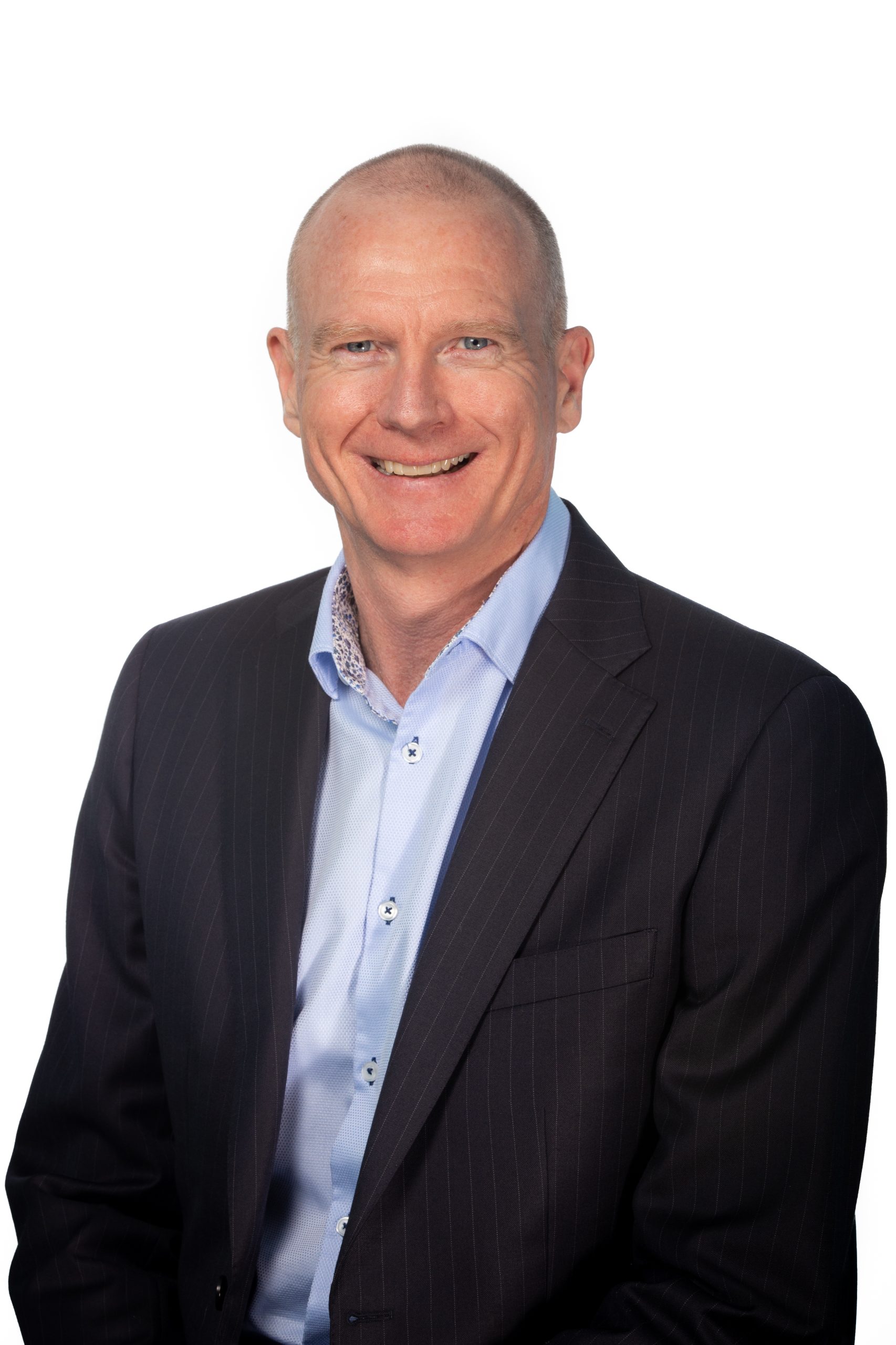
Dig Howitt, CEO and President of CochlearLtd.
Listen to other episodes of Med Tech Talks here

